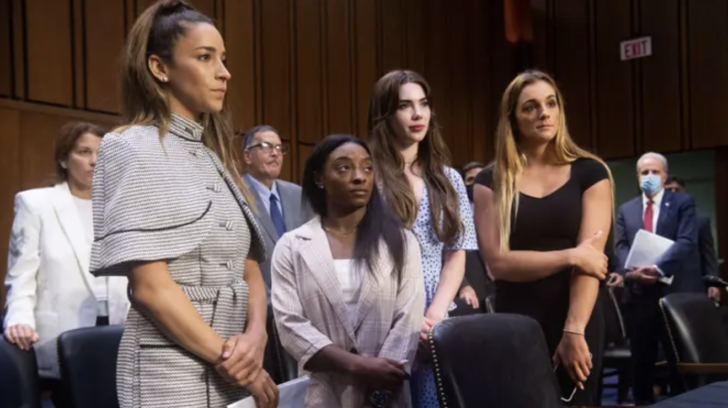Over 500 women and kids who were sexually abused by Larry Nassar, the former doctor for the women’s national gymnastics team, and others in the sport will get $380 million as part of a settlement with USA Gymnastics and the United States Olympic and Paralympic Committee (USOC) (USOPC).
It is one of the largest sex abuse settlements in history, and it brings to a close a five-year legal struggle that exposed how Olympic organizations failed to protect young athletes from sexual predators.
The majority of the cost will be covered by USA Gymnastics’ insurers and the USOPC; however, the USOPC will pay $34 million directly and will loan USA Gymnastics $6 million as part of its contribution.
Survivors of Nassar’s crimes had previously been paid $500 million in a previous deal with Michigan State University, which had employed Nassar at the time of the settlement with the university.
“At long last, this story has come to an end.”
Rachael Denhollander, a former gymnast, said as much on Twitter after the settlement was disclosed the day before yesterday. Following her public accusation of Nassar of abuse in September 2016, Denhollander was joined by hundreds of other competitors, including gymnastic legends Simone Biles, Aly Raisman, and McKayla Maroney, who all made similar complaints against the doctor.
In the wake of the tsunami of legal challenges, USA Gymnastics found itself in financial trouble and was forced to declare for bankruptcy in 2018. This agreement will enable the organization to emerge from bankruptcy, to reestablish its connections with sponsors, and to chart a new course forward under new management.
The big picture: This court struggle not only revealed a lack of concern for athlete safety at the highest levels of US Olympic organizations, but it also revealed a lack of action by law enforcement when they were made aware of Nassar’s crimes as early as 2015. Simone Biles stated during a Senate hearing in September that she holds “an whole system responsible for enabling and perpetrating this abuse.” In a statement, FBI Director Christopher Wray called the agency’s response “inexcusable” and pledged that it would never happen again.

